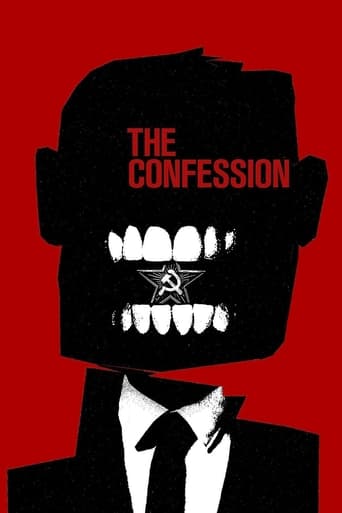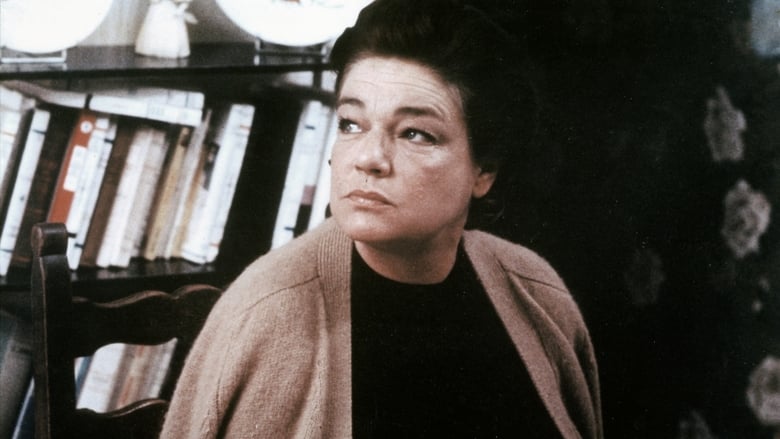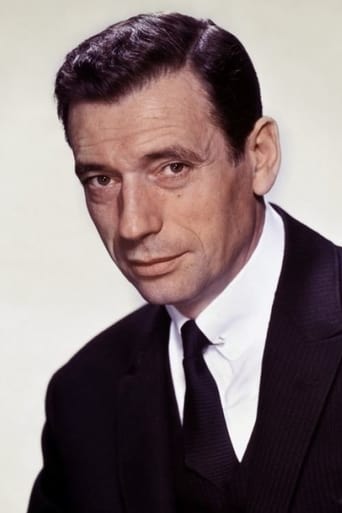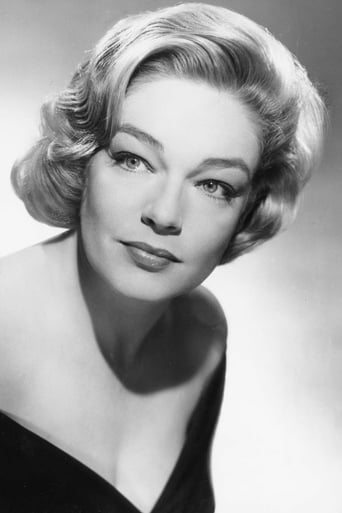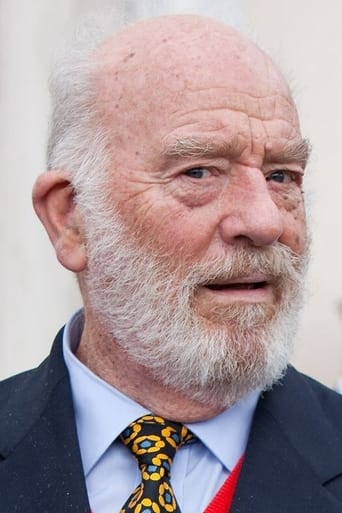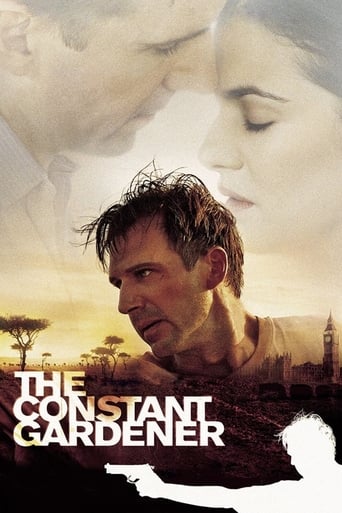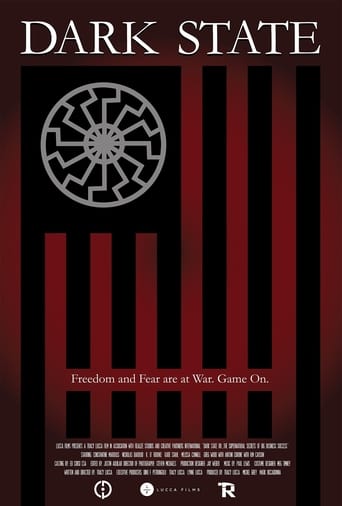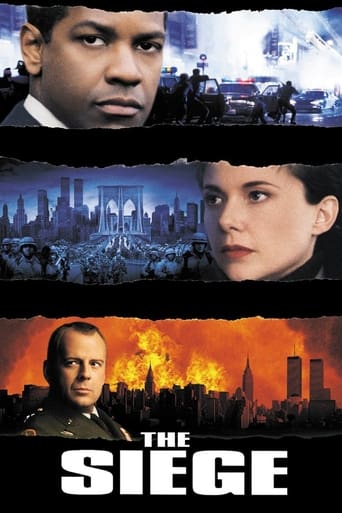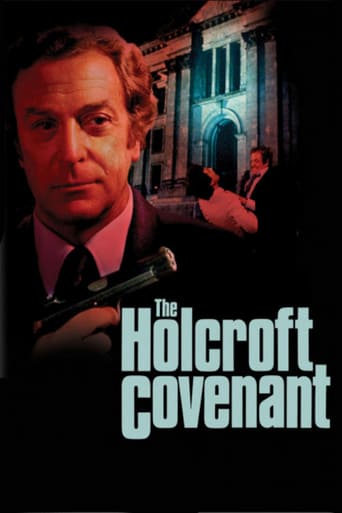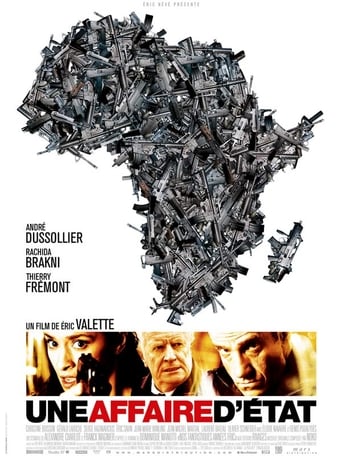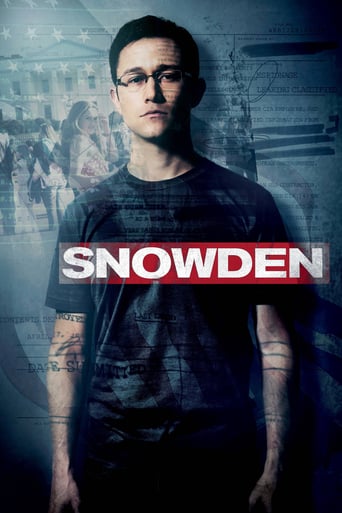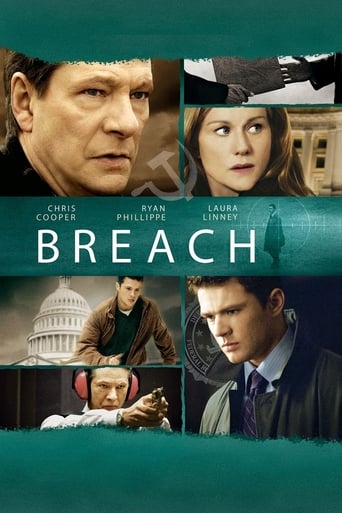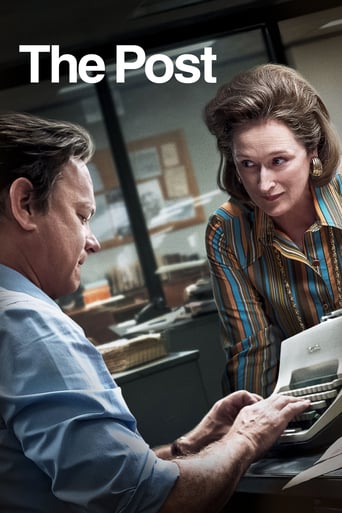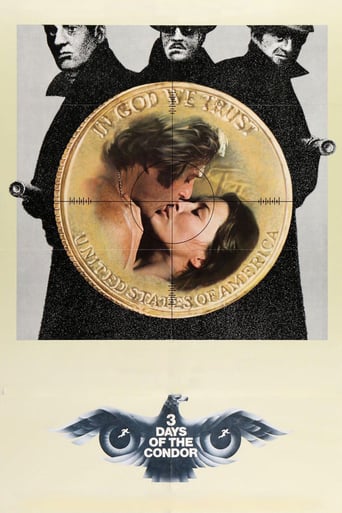The Confession (1970)
The vice-minister of Foreign Affairs of Czechoslovakia, knowing he's being watched and followed, is one day arrested and put into solitary confinement by his blackmailers.
Watch Trailer
Free Trial Channels
Cast


Similar titles
Reviews
Load of rubbish!!
Excellent, a Must See
There are moments in this movie where the great movie it could've been peek out... They're fleeting, here, but they're worth savoring, and they happen often enough to make it worth your while.
Worth seeing just to witness how winsome it is.
"Confess? Confess to what?"That is the question asked by Yves Montand as Artur London at a point fairly early in Costa-Gavras' The Confession. Released in 1970 hot on the heels of Z, The Confession also tells a true story though this one is set behind the Iron Curtain and explores the Stalinist era show trials. How it does so is through the journey of one man into an increasingly bewildering situation that feels straight out of Kafka's The Trial. Except, as the film reminds us, this actually happened.Though the setting is different, it's hard not to find the film a spiritual successor to Z. Both films deal ultimately with the same theme: the misuse of government power and the subversion of justice. In the case of this film, it's not an assassination but a 1952 Czech show trial. Yet the film, through Jorge Semprún's script and Costa- Gavras direction, play the film not as a thriller but as a very different kind of journey into a world just as corrupt but perhaps even more horrifying. The journey the film takes us on is a fairly simple one. One may find themselves asking how, in cases around the world, why someone would confess to something they didn't do. Understanding just how and why a person would that can often be difficult to understand. Watching this film removes the doubt of that by often putting the viewer into the position of an accused man and his family going through just such as experience. Across two hours or so, we're shown how it can happen through a combination of torture, misplaced faith in the system, and appealing to that most basic of instincts: survival. We see how innocent events can be turned into damning statements, how promises are made but quickly forgotten, how the threat of a terrible fate can lead a man on a path from which there seems no escape. Watching the film, I often found myself thinking back to Kafka's The Trial as the accused tries to make sense of the events around him and how ultimately the only choice might be to accept his fate. It's a journey that the viewer isn't likely to forget soon after watching it.Part of that is down to the cast and the leading man in particular. Yves Montand made a huge impression as the charismatic assassinated politician in Z and the role he plays here couldn't be further removed from that role. Here Montand plays an unassuming government official whose only crimes seem to be having been in the wrong place at the wrong time and thus spends years of his life imprisoned and tortured. Montand's performance, most emotionally and physically is something to behold, as we see an intelligent man reduced to a shell of his former self and is ultimately made a victim of the very system he has been spent his life working to defend and support. That Montand manages to go from dignified man to complacent victim and back again is a testament to his skill as an actor in bringing the script to life.The supporting cast is solid. Simone Signoret as Montand's wife gives an intriguing and truthful performance as she too goes on a journey just as bewildering, trying to make sense of the chaos around her. Gabriele Ferzetti also gives a standout performance as one of the many interrogators as what seems a reasonable man with the best intentions of everyone at heart though (as his final scene suggests), his motives are never quite clear. The film overall is well cast and no one would seem to have been miscast in any part which itself is a testament to just how well cast it is.What really separates this film from Z (and perhaps the other films of Costa-Gavras) is its atmosphere. The score is sparse and lacks the upbeat quality found in both Z and State Of Siege, going instead for an underplayed feel that also gives the film a strong sense of reality through its lack of presence. There is a stark, gray feel to the film across many of its scenes with the exception of scenes set at a later date from the rest of the main narrative. The pace is also much different, with less energy going into the narrative drive which is something that helps to give the sense of time passing slowly for both accused and viewer alike. It's an interesting feeling and one that works well.Yet there's more to it than that as the film puts the viewer a little too close for comfort into the situation. Costa-Gavras makes some interesting use of cinematography and sound at times during sequences with Montand is blindfolded, playing those scenes in either close- ups or extreme close-ups with an exaggerated sound level to help the viewer understand what must be going on behind the blindfold by barely giving them anymore knowledge that the character has. That sense also extends to some hallucinatory atmosphere in some of the interrogation scenes where exhaustion catch up with the lead and cause the lines between reality and nightmare, past and present, to blur to the point of confusion. Rarely has a film captured the experiences of both imprisonment and the horrors of sleep deprivation as well as this film does.The Confession then, in the final analysis, is a film of many things. It's a Kafka-esque journey into a dark chapter of 20th century history, one that lets the viewer understand why imprisonment is like in a dystopian state. Yet it is the combination of filmmakers, actors, and script that convey the ultimate horror of the film: that real life can be even more terrible than anything a fiction writer can come up with. Though set in Easter Europe of the early 1950s, this tale of justice and political faith betrayed is a lesson that is timeless and in need of being remembered.
Here is a French-Italian film by a Greek filmmaker, Costa-Gavras. The film was released in 1970, and stars Yves Montand, with Simone Signoret costarring. The acting is impressive and all the performances are very solid. Stylistically, the film feels similar to Costa-Gavras's last film, "Z", utilizing polished camera-work in what is ultimately a classicist mode of filmmaking that was popular for many political films in the '60s through the mid-'70s, such as Schlondorff's "The Lost Honor of Katharina Blum". The cinematography looks quite good, and you would expect as much, given that it was done by the famous cinematographer of the French New Wave, Raoul Coutard, who worked on virtually all of Godard's and Truffaut's early films, as well as "Z". Like all the Costa-Gavras films I've seen, "The Confession" is a highly political film, delivered from a communist perspective. It's based on a novel by Artur London, in which London details his true-life experiences of being abducted, tortured, and put on trial by the Czechoslovakian government in the early '50s. The first misconception that must be dispelled is the idea that this is somehow an anti-communist film. It most certainly is not. Many viewers have noted the idea that, unlike "Z", which blatantly glorified communism, "The Confession" is much less politically biased, revealing the faults in both sides of the political spectrum. I have to completely disagree. "The Confession" is just as overtly pro-communist as "Z". Viewers should be reminded that it's not actually communism that Costa-Gavras is attacking in this film. Rather, he's attacking a specific regime in Czechoslovakia that corrupted communism and twisted it into a fascistic, totalitarian entity that, for Costa-Gavras, is not truly communism at all. Stalinism is the target of Costa-Gavras's criticism here, not communism. At no point in the film is the inherent virtue of communism ever brought into question. At most, the film provides a warning, like Donnersmarck's "The Lives of Others", regarding how quickly socialism can become fascism, and a reminder of the often thin line that separates the two. So, while Costa-Gavras is certainly making a critical commentary on the challenges of sustaining a true socialist state, he is never, at any point, questioning the notion that communism is intrinsically righteous and that it remains the ultimate goal toward which humanity and society should strive. That idea is axiomatic in "The Confession" just as it was in "Z". For Costa-Gavras, communism is still infallible, and therefore if something is flawed, then it must not be actual communism (in logic, I believe this is referred to as the "No true Scotsman" fallacy).In spite of this, I have a lot of respect for what Costa-Gavras did with this film. Yes, it's blindly faithful to the idea of communism, but it is at least willing to concede that communism is, indeed, corruptible. It may be infallible, in Costa-Gavras's eyes, but under the wrong conditions, it can be mutated into something that is fallible. This is sophistry, of course, but that's the point: With "The Confession", Costa-Gavras manages to condemn the corrupting of communism, and the form this corruption took, without ever condemning communism itself. It's a bit of a copout, admittedly, but it's much more than many staunch communists of the day were willing to acknowledge. Much like the protagonist of the film — that is to say, like Artur London himself — Costa-Gavras remains loyal to the idea of communism, in spite of everything he's seen in the events depicted in the film.So there really is nothing anti-communist here, anymore than it would be anti-Catholic to acknowledge the existence of the Inquisition. An anti-communist film would endeavor to challenge the merits of communism, to doubt its inherent worth. Nothing could be further from the reality of this film. Communism is accepted by Costa-Gavras as an innately righteous entity, and nothing in the film denies that idea. However, Costa-Gavras has at least had the courage to confront the reality that even socialism can make mistakes, and he seems to firmly believe that those mistakes need to be acknowledged and rectified, and not rejected and hidden away from the public eye. Sadly, many communists did not agree. They feared that the film would provide ammunition for anti-communists, and they saw it as an attack on the integrity of communism. They preferred, evidently, that the truth be buried, which is quite hypocritical, since it goes against the very principles of communism, and the idea that, as Antonio Gramsci said, telling the truth is a revolutionary act in itself. As a result, I appreciate Costa-Gavras's courage in making this film, as I do Artur London's in writing the novel that it's based on. It shows a genuine commitment to one's beliefs, which is something I can deeply respect, whether I share those beliefs or not.Politics aside, I think most viewers will find this film very entertaining. It tells an intriguing story, it's well acted, and it benefits from impressive direction on Costa-Gavras's part and characteristically high quality cinematography from Coutard. Stripping the film of its communist ideals, what we're left with is a film about an individual bearing the burden of human injustice, and ultimately suffering for maintaining blind loyalty to a cause. It was a loyalty that, when all was said and done, only traveled in one direction. In this way, the film carries thematic similarities to many of the chanbara (samurai) films that Japan churned out in the '60s. So I don't think the communist implications of the film should be much of a turnoff to even the most ardently anti-communist viewers. Other than an unfortunately propagandistic ending, Costa-Gavras makes it easy enough to set all of that aside and interpret the film on much broader terms, if the viewer is so inclined. RATING: 8.00 out of 10 stars
More often than not it's disappointing when an elusive film finally turns up and often the disappointment is in direct proportion to how badly one has looked forward to seeing it but I'm delighted to say that this one lived up to my expectations. Bowing as I do to no one in my love, respect and admiration for Yves Montand both as singer and actor I have, not unnaturally read all the books by and about him, bought all the albums but not, alas, seen all the films and of those elusive titles this one was the most sought-after. I knew by definition of Montand's strong Left-wing convictions - the son of an active Communist with a brother equally active and eventually high-ranking in the party -which if anything intensified after his marriage to Simone Signoret so that their life together was punctuated not only by concerts and film making but also by pro-Communist crusading (over the years they signed literally dozens of petitions)yet despite that background he agreed to make a film based on the real-life experience of Artur London, a high-ranking Communist in what was then Czechoslovakia, who, in a Kafkaesque nightmare was arrested and tortured - both mentally and physically - by fellow Communists with the end result of obtaining a confession (L'Aveu is, of course, French for confession) that he had betrayed the party. I'm about as far from a political animal as you can get whilst conversely I'm the nearest thing to Montand-For-President and that, pretty much is how I approached the film. Montand is fantastic. Let me put it another way: Montand is FANTASTIC. Required to run a gamut from suspicion at one end to mental and physical exhaustion at the other he inhabits the part completely. Considering that films are shot out of sequence and over a period of several weeks or months the manner in which he not only sustains a performance but builds it piece by piece like Jacques Villeret building an Eiffel Tower of matches in Diner du Cons is masterful. As a take on the way in which the Communist mind works (or worked) it is illuminating and full of wry touches in the dialogue as when Montand, urged to confess his mythical crimes argues quite naturally that if he IS a traitor then how can they believe anything he says, if he is NOT a traitor why is he in prison. The only negative is that I saw it in a small Art House in Paris as part of a Costa-Gavros retrospection and it's unavailable on DVD. Highly recommended.
I saw this film last night and it has being going around in my head all day. It builds with a slow intensity which becomes absolutely compulsive. In style it reminded me a lot of The Godfather films. Calm, matter of fact but intensively observed portrayals of almost unbelievably hideous events. It has the same effect - if you stop to watch for just a few seconds, you are irresistibly drawn into the stream of events. Yves Montand is at his down beat best. What struck me most is that this true story of the post-way purges in the USSR's East European client states is of a time and place almost inconceivable to most of us now. The blind belief in The Party, the Inquisition-like mind games of the interrogators that convince the accused that to demonstrate their true loyalty to the Party, they must confess to the most ridiculous accusations of their betrayal of it. And I was surprised to see that it was made in 1971, the feel is absolutely contemporary, even though it depicts such far off events. While I was watching, I was convinced that I knew the story - isn't this the same as Koestler's 'Darkness at Noon'?

